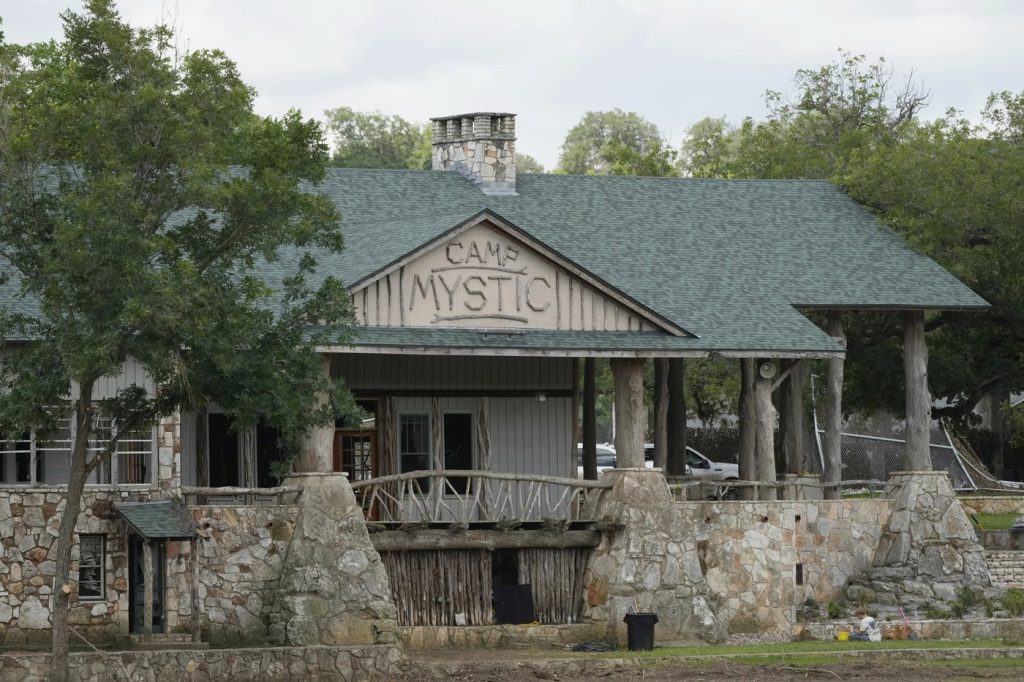As floodwaters surged in Texas, camp counselors displayed extraordinary bravery by hoisting children onto rafters, carrying them to dry ground, and singing to keep them calm during the crisis. Tragically, some counselors lost their lives in the effort to protect their campers during this tragic event.
This heroic response has drawn attention to the invaluable role that counselors play in the summer camp experience, particularly for the over 25 million children who attend camps every year, as estimated by the American Camp Association. Often teenagers themselves, many counselors are only a year or two out of their own camper days, establishing a unique bond with the children they supervise. Keli Rabon, a mother from Houston, expressed her gratitude for the counselors’ bravery, noting that they were "really just kids themselves" who saved her 7- and 9-year-old sons from the flooding at Camp La Junta.
The disaster in Texas has resulted in over 160 individuals still believed missing, with at least 118 confirmed dead due to the floods that devastated the Hill Country region. Among the stricken locations is Camp Mystic, a century-old all-girls Christian summer camp where at least 27 campers and counselors perished. Authorities have reported that seven individuals connected to Camp Mystic have yet to be located, highlighting the ongoing challenges faced in the aftermath of the disaster.
Just two days before the catastrophic flooding, Texas inspectors approved Camp Mystic's emergency planning measures. While specific details of the plan have not been disclosed, state law requires such plans to include evacuation protocols for campers and defined responsibilities for staff members and counselors.
Henry DeHart, interim president and CEO of the American Camp Association, pointed out that counselors undergo extensive training, covering topics such as risk management, emergency procedures, child development, abuse prevention, and supervision. Despite the challenges they face, including wildfires and medical emergencies, these counselors typically receive little public recognition for their dedication. DeHart emphasized that the situation in Texas serves as a poignant reminder of the immense responsibility that camp counselors assume and their commitment to these duties.
In reflection on the events in Texas, 19-year-old counselor Helen Hardymon from Westview on the James camp pondered how she would react in a similar situation. She confessed that while her theoretical knowledge of protocols—including meeting places and contact lists—was solid, the unpredictability of emergencies could lead to fear and uncertainty. Hardymon recounted taking care of campers who were often anxious, especially when weather-related concerns arose, emphasizing the emotional challenges of counseling, particularly when children find themselves in distressing situations without a parent present.
Training for counselors often begins well before the season, and many camps now require extensive pre-camp preparation. Former campers like Hardymon enter into special programs to transition into counselor roles, gradually increasing their responsibilities until they achieve full counseling status. Camp Director Anthony Gomez mentioned that the goal is to uphold the camp's culture and philosophy by having counselors who fully understand its mission and values.
Experts like Barry Garst, a youth development professor at Clemson University, stress that by the time these counselors assume senior roles, they have deeply rooted connections to their camp’s mission. Professor Jim Sibthorp from the University of Utah noted that the proximity of counselors to their campers creates powerful connections, as young children view these counselors as closer peers rather than authority figures, which enhances their influence and leadership within the camp setting.











